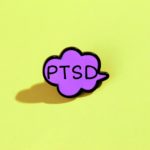PTSD or post-traumatic stress disorder is a mental illness that most people develop after going through severe traumatic events like a natural disaster or accident. It is very common in military veterans after they return from areas of active combat. It is also known as shell shock or combat stress for this reason. Most of the time, after a while, the affected people can return to a normal state of mind. it is not abnormal for the mind and body to experience shock after a traumatic event but when your mind gets stuck in the trauma, that is not normal. This gets worse with time and develops exaggerated anxiety responses to the triggers. These might be the symptoms of PTSD that would need immediate professional intervention.
Why do veterans suffer from PTSD?
Our nervous system responses to stress full situations in two ways. Mobilization and immobilization.
- Mobilization is when your body is experiencing a stressful situation and goes into fight or flight mode. The heart starts beating faster and all your reflexes become active. After the danger passes your mind calms down and brings all the systems of the body to a normal state.
- During immobilization, the mind becomes unable to let go of the stress and gets stuck. You are unable to move on from the traumatic event. This is what happens with veterans during war and combat. They are exposed to so much trauma and death and violence that their mind cannot bring the body to its normal state. Hence, the veterans form PTSD.
Do all veterans develop PTSD?
Although anybody going through trauma, no matter what age, can develop PTSD. But some factors increase the risk of certain people more than others. These risk factors are the length of time spent exposed to the traumatic event, the mental state of an individual, and the amount of injury suffered by the individual. All these factors have a linear relationship with PTSD symptoms and their severity.
What are common PTSD symptoms:
Symptoms following the traumatic event can take seconds, days, years, or months to develop and they are different for every individual. But for ease of understanding these are divided into four main categories:
- Recurrent recall of the traumatic incident. These are intrusive thoughts, nightmares, disturbing memories, or flashbacks of the event. These are so vivid that the person might believe that he is going through the events again. These types of symptoms bring about panic attacks, rapid heartbeat, physical and mental distress.
- The person may voluntarily or involuntarily avoid the factors that trigger the memory of the traumatic events. Things like places, people, situations, or thoughts associated with the trauma may trigger the person and they end up isolating themselves from the outside world for the fear of living through the horror again.
- Veterans suffering from PTSD can have exaggerated negative beliefs and feelings for the world around them. They also suffer from survivors’ guilt and blame themselves for the events. They turn away from their family and friends and find comfort in loneliness.
- People suffering from PTSD are always at the edge. They are often observed to be irritable and jumpy. Angry outbursts and exaggerated emotional reactions to situations are common occurrences. They have difficulty controlling their emotions, sleep, or concentration.
PTSD not only deteriorates your quality of life and mental health, but it also gives other mental issues space to develop, making things even worse. These people are more susceptible to depression, substance abuse, cognition, and memory loss. PTSD often affects their social life, work-life, family relations, and day-to-day navigation of normal tasks.
How can we diagnose PTSD?
PTSD is diagnosed when a person undergoes a psychological evaluation. You need to seek the help of a healthcare professional, who, after a thorough mental evaluation in conjuncture with physical tests, can diagnose you with PTSD.
Is PTSD curable?
There are a lot of therapies that can be used to restore a person’s mental health after PTSD is diagnosed. A large number of veterans join programs specially developed to help them overcome PTSD. Some of the treatment options are:
- Cognitive-behavioral therapy: This therapy helps to recognize the negative patterns in your thought process through talking to a professional and overcoming them. This is done in combination with exposure therapy.
- Exposure therapy: During this therapy, the patient is asked to re-imagine the memories that trigger PTSD to learn how to cope with them. The professional helps the patient to go back in time to deal with the fear and anxiety of these situations. It is used effectively to treat nightmares and flashbacks. Nowadays this is done by artificial intelligence through virtual reality. The veteran is shown the events of war and they learn to overcome the trauma of those experiences.
- Eye movement desensitization and reprocessing (EMDR): This therapy is combined with exposure therapy to treat PTSD patients. It aims to help the patient learn to control the body’s response when going through emotional stressors.
- Medications are also used to help patients overcome anxiety. These include anti-anxiety and anti-depression pills. Symptomatic treatment like supplements for insomnia is also done. The psychiatrist and psychologist both work in close proximity to develop an efficient plan for the quick recovery of the suffering veteran.
If you are a veteran suffering from PTSD or know someone who might be going through it, you should immediately get help. Help the professionals get you better before this mental disorder consumes you and cause any real physical trauma to you or your loved ones.
If you’re experiencing PTSD, Addiction, depression, or anything related to your military services, please do not hesitate to call us at 205-287-5951 or email us.
A counselor is standing by to assist you and get you back to duty.











